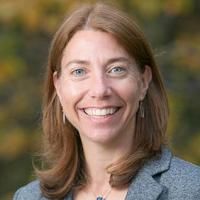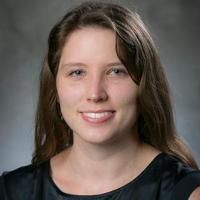GEMS Phase II Report: Coastal Restoration
Date
2021-07-16
Journal Title
Journal ISSN
Volume Title
Repository Usage Stats
views
downloads
Abstract
Billions of dollars will be spent on large-scale restoration of Gulf ecosystems over the coming decades, but there is currently no shared platform to guide assessment and reporting of restoration progress and effectiveness for the broad set of environmental, social, and economic goals shared by the many institutions working in the Gulf. This report, a product of the Bridge Collaborative — Duke University’s Nicholas Institute for Environmental Policy Solutions, The Harte Research Institute, and The Nature Conservancy, with support from the National Academies' Gulf Research Program — is a part of a project to advance standardized metrics of restoration success by developing ecosystem service logic models (ESLMs) with stakeholders from the five Gulf states, relevant federal agencies, and technical experts. ESLMs trace the effects of restoration strategies as they influence ecological and social systems to create outcomes that are important to people. The use of logic models is recommended by the National Academies of Science as a best practice for monitoring plan design; these models can provide a practical and transferable approach for measuring success at different scales.
Numerous strategies for coastal restoration exist, and there are many places along the Gulf coast where restoration can be implemented. ESLMs are a great tool to compare across restoration strategies and locations to match likely restoration outcomes with stakeholder goals. In addition, evidence that accompanies these models can be used to clarify uncertainties that need to be considered and to identify critical research gaps.
This Phase II report of the GEMS project identifies metrics available to monitor the social and economic outcomes of a wide variety of coastal projects funded in the Gulf, using ESLMs to illustrate how these projects’ impacts cascade through the biophysical system to result in social and economic outcomes. Phase II expands the focus to assess socioeconomic metrics for 16 coastal project types, including habitat restoration, recreational enhancement, and water quality improvement projects.
This report follows the Phase I report, which focused on understanding the various types of oyster reef restoration occurring in the Gulf and how those projects contribute to social and economic well-being.
Type
Department
Description
Provenance
Subjects
Citation
Permalink
Citation
Olander, Lydia, Christine Shepard, Heather Tallis, David Yoskowitz, Kara Coffey, Chris Hale, Rachel Karasik, Sara Mason, et al. (2021). GEMS Phase II Report: Coastal Restoration. Retrieved from https://hdl.handle.net/10161/26610.
Collections
Scholars@Duke

Lydia Olander

Sara Mason
Sara Mason joined the Ecosystem Services Program at the Nicholas Institute for Energy, Environment & Sustainability as a policy associate after graduating from Duke with a master’s degree in environmental management. Her work focuses on the interdisciplinary nature of biodiversity conservation and how that can be leveraged to engage the public and policy makers in conservation efforts. Prior to joining the Nicholas Institute, Sara worked in ecological field research and endangered animal rehabilitation.

Katie Warnell
Katie Warnell is a senior policy associate for the Ecosystem Services Program. She is a graduate of Duke University’s Master of Environment Management program with a concentration in ecosystem science and conservation and was awarded a geospatial analysis certificate. She has served as an intern at the Triangle Land Conservancy and as a research tech with the Duke University Superfund Research Center. She has conducted research on South Africa’s bats with the Organization for Tropical Studies and was involved in a DukeEngage project on fish farming in Ecuador.
Material is made available in this collection at the direction of authors according to their understanding of their rights in that material. You may download and use these materials in any manner not prohibited by copyright or other applicable law.